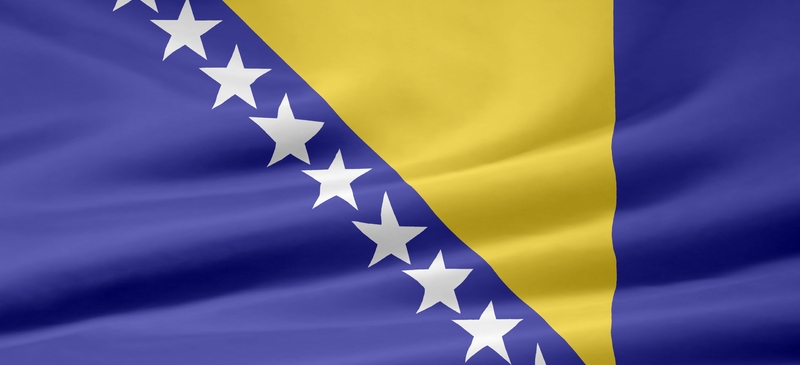
The EU must stand firm on Bosnia
The EU’s inability to halt the Bosnian civil war of 1992-95 marked the nadir of its attempts to build an effective foreign policy. Eventually the Americans helped the Europeans stitch Bosnia back together, at the Dayton peace conference. Since then, billions of euros of aid, thousands of peacekeepers, and the UN/EU-backed ‘office of the high representative’ have brought peace and order to Bosnia.Recently, the high representative has tried to take a back seat, encouraging Bosnians to take their own decisions. But following the stalling of talks on the future of Kosovo, a new crisis has gripped Bosnia. If the country fragments, nobody will take EU foreign policy seriously.
The leadership of the Republika Srpska (RS), the majority Serbian part of the country, has been particularly reckless this autumn. Milorad Dodik, president of RS, has blocked attempts to unify the country’s police forces. The high representative, Miroslav Lajcak, reacted by introducing measures that would allow the government to take decisions even when some ministers are absent. Dodik saw this as a threat to his ability to sabotage Bosnia’s central authorities, and forced his ally, Bosnian prime minister, Nikola Spiric, to resign in November. This has left the country in disarray. Dodik has threatened to withdraw all RS representatives from Bosnia’s central institutions if Lajcak’s measures come into effect. Lajcak may have to choose between restoring direct international rule over Bosnia, or seeing the country disintegrate.
Serbia and Russia are not helping. Vojislav Kostunica, Serbia’s prime minister, declared in October that Belgrade will ‘decisively defend’ Republika Srpska. Kostunica wants to use Bosnia as a bargaining chip to get a better deal for Serbia on Kosovo. Every time that Russian diplomats meet RS leaders, the latter become more uncompromising. Russia, as a member of the UN Security Council, must approve the renewal of the EU peacekeepers’ mandate in January. The EU should remind the Russians that they approved the Dayton accords.
The EU has not always managed Bosnia well. It kept Lajcak’s predecessor, Christian Schwarz-Schilling, in place long after it became obvious that he lacked the skills to navigate Bosnia’s murky politicalwaters. It did better by – belatedly – replacing Schwarz-Schilling with Lajcak, a Slovak who oversaw Montenegro’s successful referendum on independence. But while precious time was lost, separatist forces gathered strength. The EU is now discovering the full power of their resolve.
Kosovo is likely to declare independence some time in December. Republika Srpska may then issue its own declaration of independence. But the EU must be firm in insisting that it will defend the unity of Bosnia, whatever happens in Kosovo. The EU has been consistent and correct in stressing that Kosovo, for a number of complex reasons, is a unique case and must not serve as an excuse for secession elsewhere in the Balkans. Bosnia’s Serbs signed the Dayton accords and have flourished in the new Bosnia, whose institutions give them a privileged position. If the country holds together it can expect to join the EU.
The EU needs to reinforce its message of Bosnian unity. First, it should push to extend Lajcak’s mandate. His powers to overrule Bosnia’s national authorities are set to expire in June 2008, and it is becoming clear that the separatists have decided to wait for Lajcak to go. The EU cannot extend his powers alone – this requires a wider agreement involving Russia, the US and the UN – but the EU needs to lean on its partners and make clear it has the necessary patience to prevail.
Second, Lajcak – now vilified by the Bosnian Serb and Serb media – must receive clear support from the EU. Bosnia’s warring factions see that the EU is busy with Kosovo, Iran and other crises, and hope that it is too distracted to give Lajcak the support he needs. The EU should tell Lacjak to use his powers to run the country, if necessary. Third, the EU needs to make clear that it is ready to strengthen its military presence in Bosnia. Its peacekeeping force has dropped to 2,500 troops (NATO had 60,000 when it first sent in troops). The numbers remaining may not be enough to intervene decisively in case of hostilities. Mercifully, the EU governments are united over the future of Bosnia (which they are not on Kosovo). If they demonstrate resolve they can convince Bosnian Serbs, Serbs and Russians not to undermine the agreements that ended Europe’s worst war since 1945. A majority of Serbs probably see that, in the long run, the EU has more to offer them than Russia.
